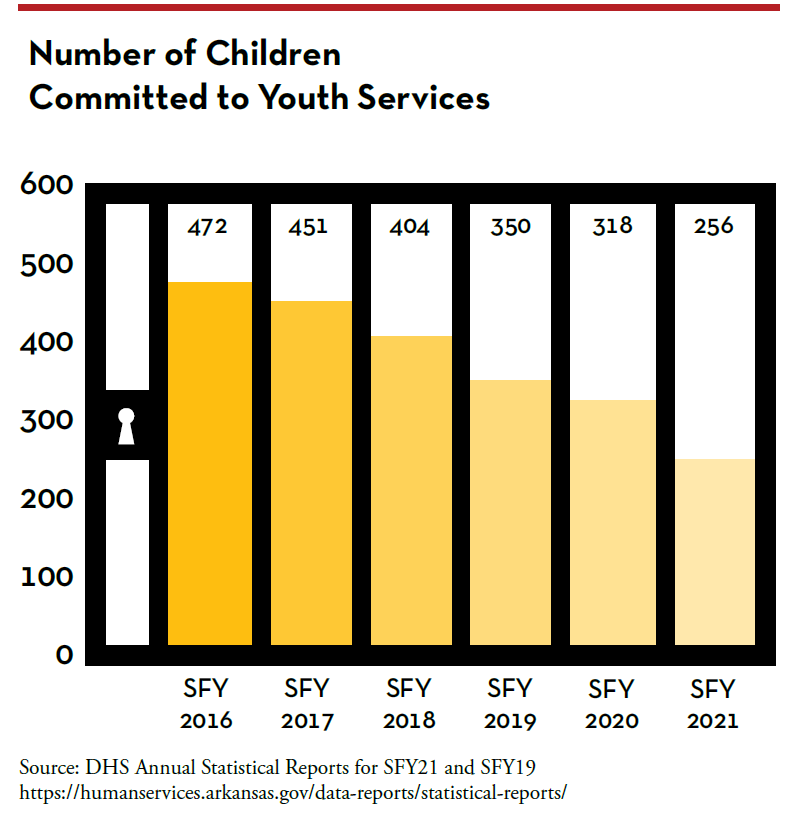Juvenile Lockup v. Community-Based Alternatives
Most Arkansas youth who enter the juvenile system are at low or moderate risk of posing physical harm to others. Holding youth in juvenile lockups, especially for extended periods of time, is bad for their well-being and endangers their physical safety and mental health. It also increases the likelihood they will reoffend and later enter the correctional system as adults.
High quality, evidence-based community programs are more affordable than locking kids up, more effective in improving their long-term outcomes, and better at ensuring public safety. In 2019, Arkansas passed comprehensive juvenile justice reform, Act 189, which has the overarching goal of keeping kids out of lockups and providing them the support and services they need in their communities. The success of the reform act will depend on how it is funded and implemented.
Juvenile Court Fees and Fines
Arkansas juvenile court judges have significant authority to levy fees and fines on families with children in the juvenile justice system. Fees and fines have a disproportionate economic impact on low-income families, BIPOC families, and families from rural communities. This increases the likelihood of children from these families being put in the juvenile justice system. And fines and fees undermine the goals of the juvenile justice system in many other ways. An emerging national trend has been to limit the use of fees and fines.


You must be logged in to post a comment.